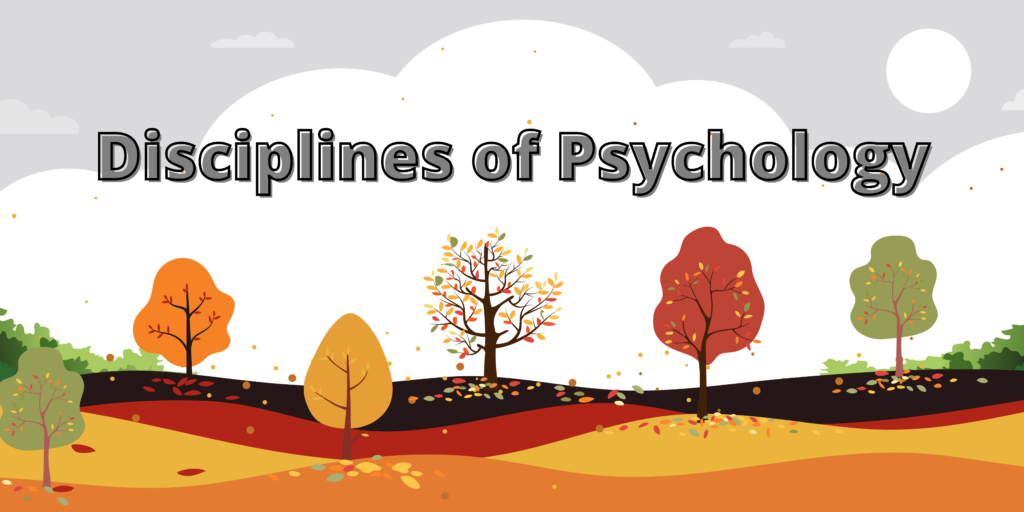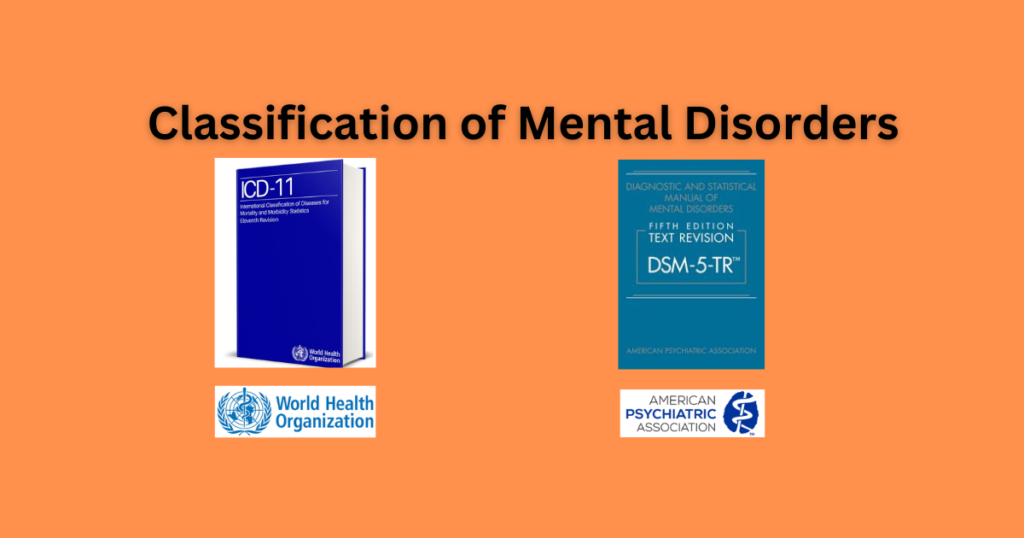Disciplines of Psychology

What is Psychology?
Psychology is the scientific study of mind and behavior. The study of psychology can help people gain a deeper and richer understanding of themselves as human beings. It helps promote insights into their own actions as well as a better understanding of other people. Originating in 400 – 500 BC, psychology has developed into a diverse scientific discipline. Psychology involves various sub-fields of scientific research and study like Clinical, Experimental, Social, Educational, Neuro-psychological, Sports, Developmental, Organizational, etc also called branches of Psychology.
Disciplines of Psychology
Abnormal Psychology
Abnormal Psychology is a scientific study of any behavior that is abnormal (that is, deviant from the normal or ideal behavior, in terms of appropriateness concerning one socio-cultural context of the individual) and mental health disorders. This discipline of psychology deals with recognizing, describing, predicting, and changing these abnormal patterns of behavior. It emphasizes psychological research and science to understand the nature of psychological disorders.
Clinical Psychology
Lightner Witmer coined the term “Clinical Psychology” in 1907. He defined it as “the study of individuals, by observation or experimentation, with the intention of promoting change”.
According to the American Psychological Association (APA), Clinical psychology is the psychological specialty that provides continuing and comprehensive mental and behavioral health care for individuals and families; consultation to agencies and communities; training, education and supervision; and research-based practice. This discipline of psychology is mainly concerned with the assessment and treatment of mental illness, abnormal behavior and psychiatric problems.
Clinical psychologist addresses behavioral and mental health issues faced by individuals across the lifespan. Which includes Intellectual, emotional, psychological, social and behavioral maladjustment.
Cognitive Psychology
Cognitive psychology is the scientific study of mental processes such as attention, language use, memory, perception, problem solving, creativity, and reasoning (American Psychological Association).
The father of Cognitive Psychology is German-American Ulric Neisser. He put the term into common use through his book “Cognitive Psychology” published in 1967. He also defined the term “cognition” as referring to all processes by which the sensory input is transformed, reduced, elaborated, stored, recovered, and used.
The field of Cognitive Psychology originated in the 1960s as a break from behaviorism which held that unobservable mental processes were outside the realm of empirical science.
Counselling Psychology
Carl Rogers, an American psychologist, coined the term “counseling”. Counseling psychology is a general practice that focuses on how people function both personally, and in their relationships at all ages.
It addresses the emotional, social, work, school and physical health concerns people may have at different stages in their lives. This branch of psychology also focuses on typical life stressors and more severe issues with which people may struggle as individuals and as a part of families, groups and organizations.
Counseling psychologists help people with physical, emotional and mental health issues. Improve their sense of well‐being, alleviate feelings of distress and resolve crises. They also provide assessment, diagnosis, and treatment of more severe psychological symptoms.
Developmental Psychology
Developmental psychology is also known as Life-span Psychology. It is the branch of psychology concerned with the changes in cognitive, motivational, psychophysiological, and social functioning that occur throughout the human life span.
Jean-Jacques Rousseau and John B. Watson are typically considered to be key proponents of modern developmental psychology.
This discipline of psychology examines the influences of nature and nurture on the process of human development, and processes of change in context across time. Those interested in developmental psychology study the interactions among personal characteristics, the individual’s behavior, and environmental factors, including the social context and the built environment.
Educational Psychology
Educational psychology is the discipline of psychology that is concerned with the study of human learning. The study of learning processes, from both cognitive and behavioral perspectives, permits researchers to understand individual differences in intelligence, cognitive development, affect, motivation, self-regulation, and self-concept, as well as their role in learning. The German philosopher and psychologist Johann Herbart is recognized as the father of educational psychology.
Experimental Psychology
This discipline of psychology concerned with testing theories of human thoughts, feelings, actions, and beyond – any aspect of being human that involves the mind. Therefore, Experimental psychologists employ human participants and animal subjects to study many topics. These are including (among others) sensation & perception, memory, cognition, learning, motivation, emotion; developmental processes, social psychology, and the neural substrates of all of these.
Wilhelm Wundt is considered to be the father of Experimental Psychology. He established the first psychological research and teaching laboratory within the Philosophy Department at Leipzig, Germany in 1876.
Forensic Psychology
The American Board of Forensic Psychology describes this branch as the application of psychology to issues that involve the law and legal system. Professionals in the field apply tools, research, and ideas from psychology to legal situations. Forensic psychologists are known for their psychological assessments of people involved in the legal system. Hence, they participate in investigations, conduct psychological research, and design intervention programs.
Health Psychology
This discipline of psychology focuses on how social, psychological, and biological factors combine to influence human health and illness. It is the study of understanding how psychological factors influence health and how to apply this knowledge constructively. Health psychologists can improve health by working directly with individual patients or indirectly in large-scale public health programs.
Industrial/ Organizational Psychology
The American Psychological Association defines industrial-organizational psychology (also known as I/O psychology) as the scientific study of human behavior within organizations and at the workplace. This branch of psychology focuses on deriving principles of individual, group and organizational behavior. It also focuses on applying this knowledge to the solution of problems at work.
School Psychology
This discipline of psychology is a general practice of Health Service Psychology that is concerned with children, youth, families, and the schooling process. School psychologists are prepared to intervene at the individual and system levels. They develop, implement and evaluate programs to promote positive learning environments for children and youth from diverse backgrounds. They also ensure equal access to effective educational and psychological services that promote health development (American Psychological Association).
Social Psychology
Social psychology is the discipline of psychology that aims to study about how people’s thoughts, feelings, beliefs, intentions and goals are constructed within a social context by interactions that they have with their environment. It, therefore, looks at human behavior as influenced by other people and the conditions under which social behavior and feelings occur.
Sports Psychology
Sports psychology is a proficiency that uses psychological knowledge and skills to address optimal performance and well-being of athletes. It also addresses developmental and social aspects of sports participation and systemic issues associated with sports settings and organizations. Athletes and other participants in sports (e.g., coaches, administrators, parents) can benefit from Sport Psychology interventions across many settings, levels of competition, and ages. It ranges from recreational youth participants to professional and Olympic athletes to master’s level performers. (American Psychological Association).
The multi-disciplinary approach offers several specializations for scholars as well as professionals in this field. It comprises a team of professionals, who come from various disciplines with each member providing a specific service to clients. Professionals may independently see to and treat various issues a client may have, depending on the professional’s specialization.
To know more about various psychology courses, educational institutes providing these courses and their admission notices visit Psypathy. Psypathy is a social networking platform for mental health domain created with the mission of “Mental Wellness for Everyone“. Join Psypathy to stay connected and informed about your various needs related to Mental Health Sector.







Responses